LONDON: One of the largest mosques in Europe is serving more than 500 iftar meals a day during Ramadan following the lifting of COVID-19 restrictions in Britain.
After a two-year hiatus due to the pandemic, mosques across the UK have resumed community iftar gatherings, taraweeh prayers and special Ramadan programs.
At the East London Mosque, iftar meals are cooked on-site and over 500 people, regardless of faith, sit down together to share a meal at sunset every day.
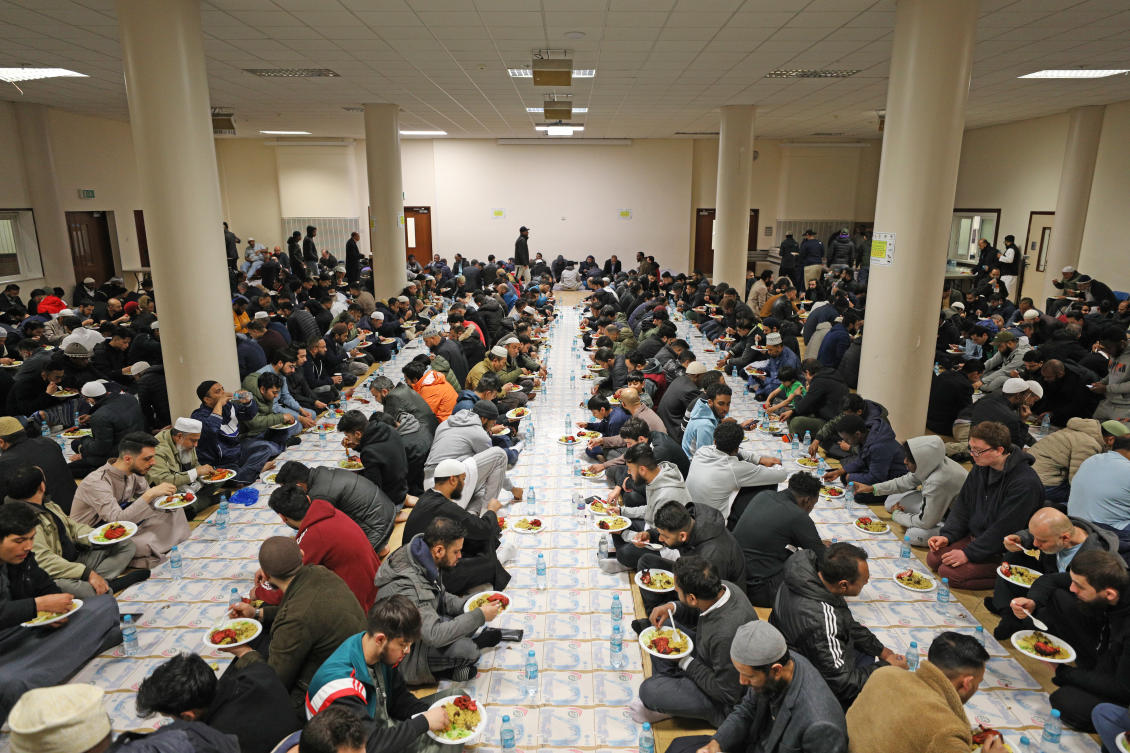
People enjoy their iftar meals after a day of fasting at the East London Mosque during Ramadan 2022. (Rehan Jamil/East London Mosque)
Any surplus meals are delivered to homeless shelters and hostels to avoid waste and spread goodwill during the holy month associated with charity, mercy and kindness.
The meals are funded by donations and consist of dates, a main course such as biryani, salad, a side such as a piece of chicken, and a bottle of water.
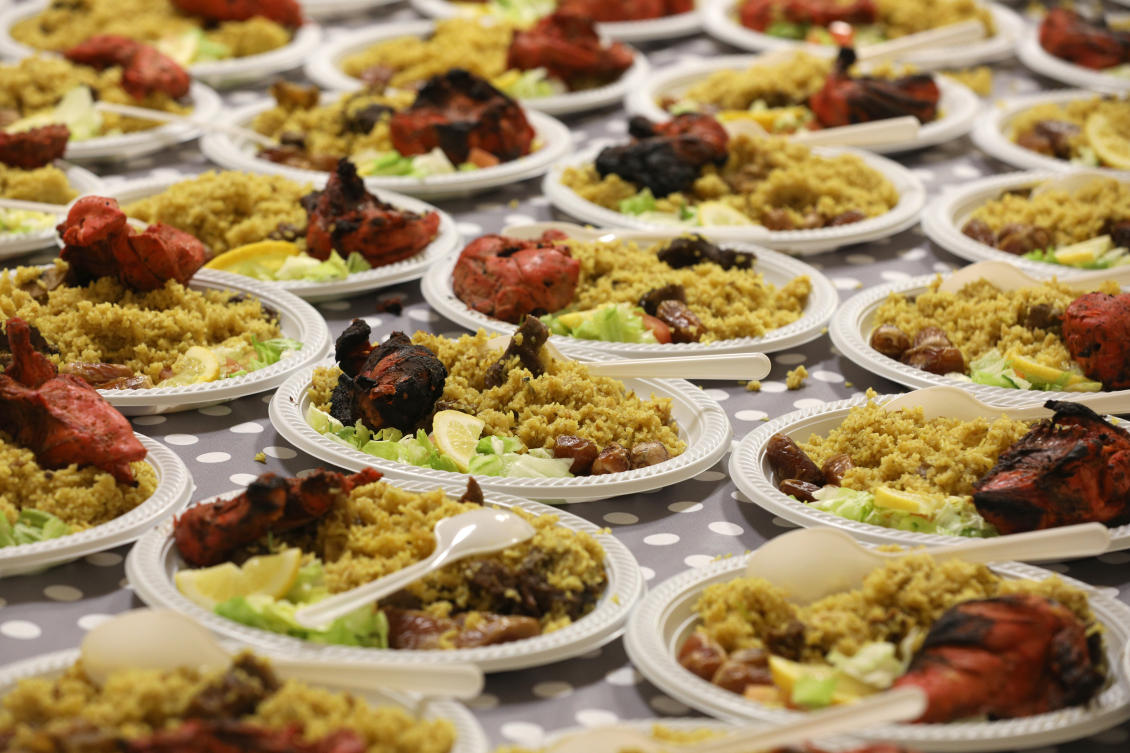
A view of the iftar meals served at the East London Mosque during Ramadan 2022. (Rehan Jamil/East London Mosque)
ELM’s Ramadan 2022 campaign centers on gratitude and thankfulness and encourages Muslims to show their appreciation to God by increasing their charitable acts and donations.
“This year’s Ramadan campaign at the mosque is called ‘Count Our Blessings.’ It’s to recognize how fortunate we are, not only after two years of COVID-19 but also as others in the world face oppression and hardship,” said Dilowar Khan, director of finance and engagement at the mosque.
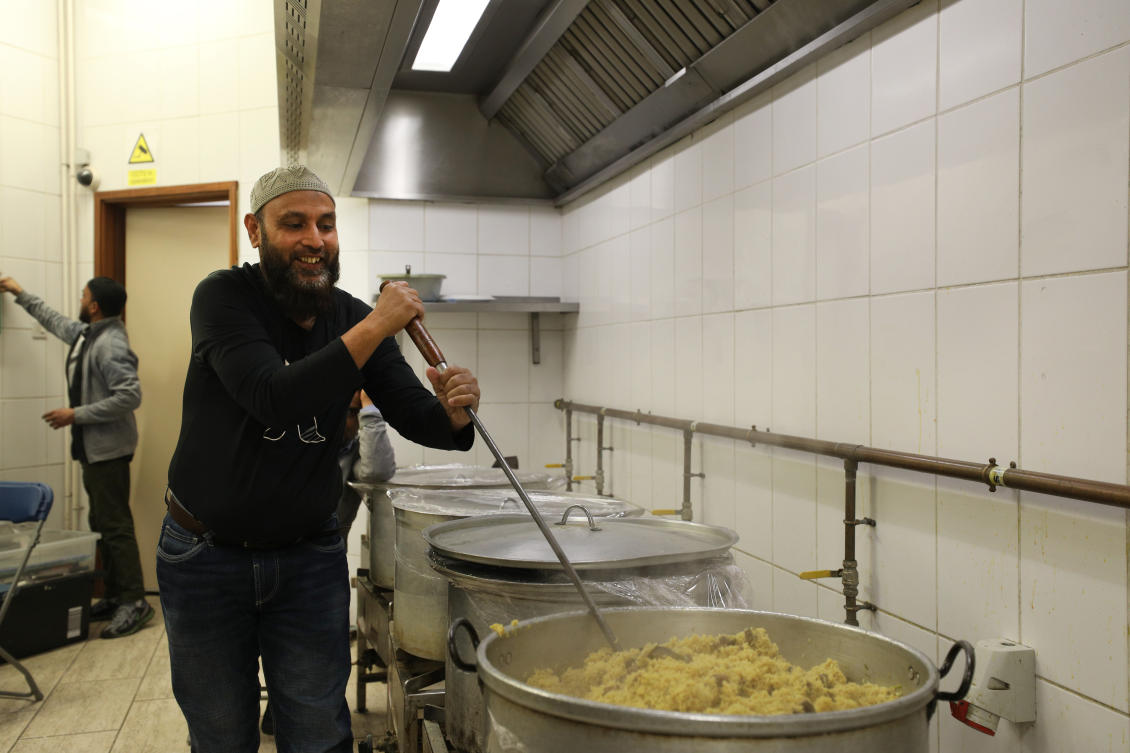
Food for the iftar meals is prepared in huge pots at the East London Mosque during Ramadan 2022. (Rehan Jamil/East London Mosque)
The ELM, which incorporates the London Muslim Center and the Maryam Center, is also working with its charity partners to ensure iftar meals are provided internationally to the most needy.
“The East London Mosque and London Muslim Center will continue to help support those in need throughout Ramadan and beyond, as best as we can to ensure we uphold the values and principles of our Islamic faith,” Khan said.
The mosque also runs a food bank that it set up at the beginning of the pandemic for those struggling to feed themselves and their families.
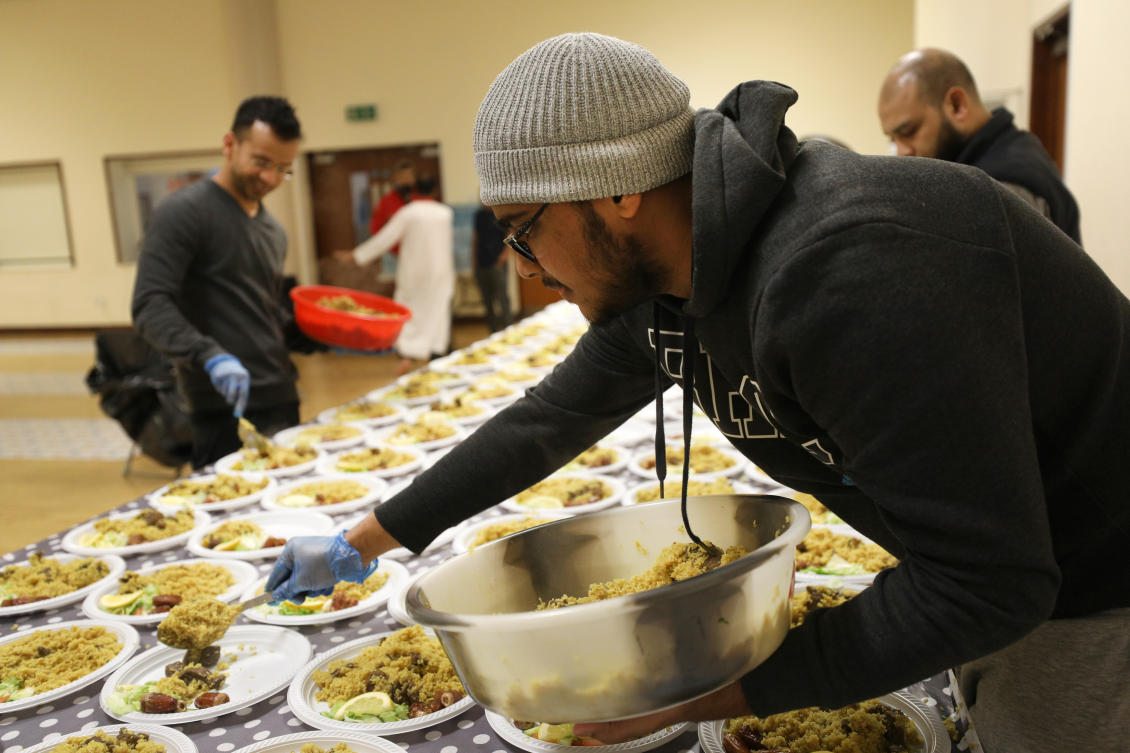
Volunteers at East London Mosque prepare iftar meals during Ramadan 2022. (Rehan Jamil/East London Mosque)
Many people in London became unemployed as lockdown measures put pressure on businesses. And since the restrictions were lifted, rising fuel costs, inflation and the effects of the war in Ukraine mean that many are unable to escape the vicious cycle of poverty.
ELM’s food bank supports more than 100 vulnerable local families.

People collect their iftar meal on arrival at the East London Mosque during Ramadan. (Rehan Jamil/East London Mosque)
“We have seen this figure rise steadily with a sharp rise in the cost of living, energy and food prices,” said Sufia Alam, head of programs and the Maryam Center.
To ensure families had enough to eat during the holy month, the mosque “prepared and distributed food sacks with about two weeks’ worth of provisions containing culturally sensitive food that is halal,” she said.
“We want to ensure families are not struggling in Ramadan by spreading the love, and that they have enough food on the table.”
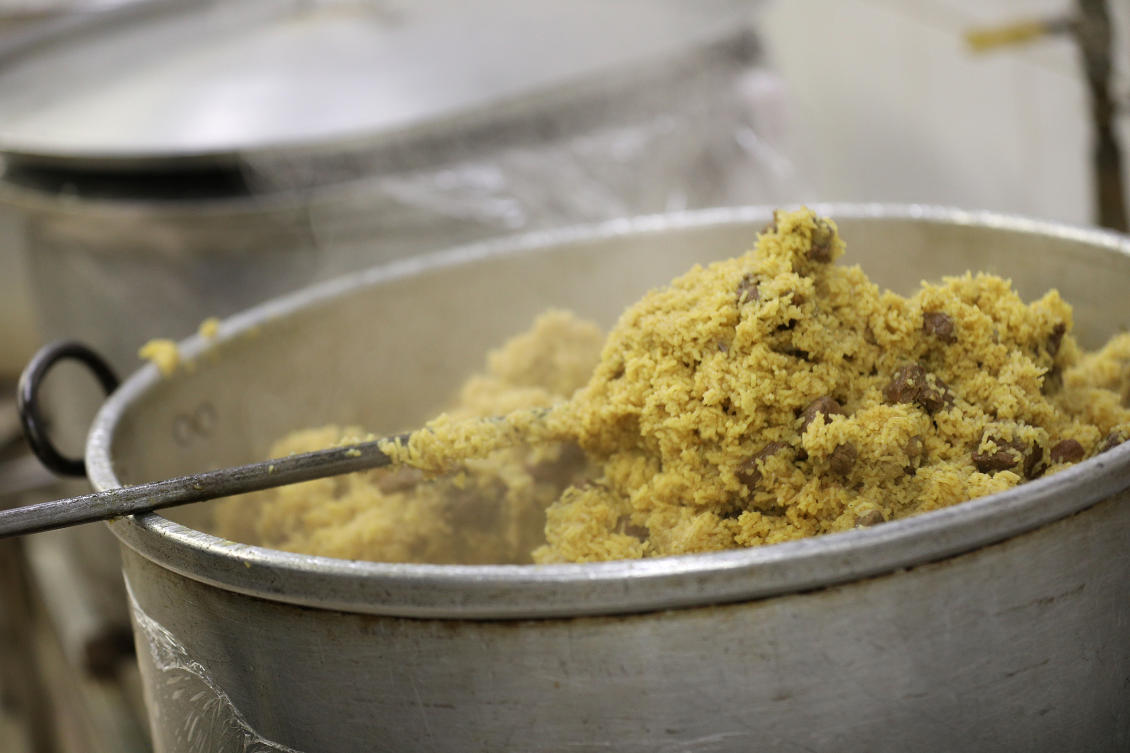
Food for iftar meals are cooked in large pots at the East London Mosque during Ramadan. (Rehan Jamil/East London Mosque)
Alam said the mosque was open to everyone and tried to help anyone who needed it.
“The mosque continues to support over 200 refugee families living in the borough of Tower Hamlets with food and clothing,” she said.
“We have also helped people who have found themselves stuck in different parts of the country without necessities. We don’t turn people away, and try to help everyone.”


























